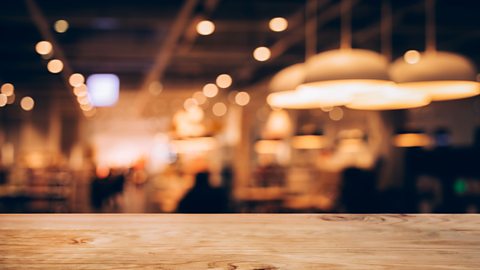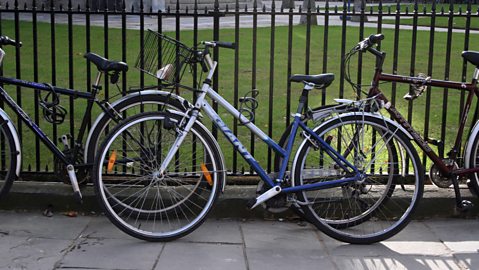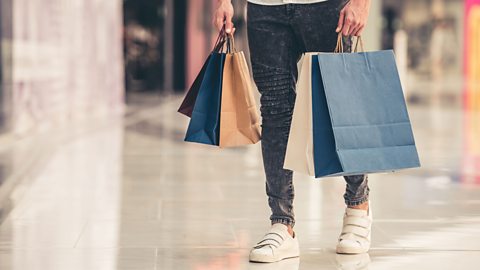Shopping after lockdown: what will change?
The lockdown transformed all our shopping habits overnight. With many outlets now reopening, The Bottom Line explores how Covid-19 could continue to shape our buying behaviour in the months and years ahead.
Will things eventually go back to how they were before, or has the pandemic heralded a whole new approach to spending? Here’s what the experts have to say.

The weekly shop is back
Lockdown rules meant that frequent food shopping had to stop in favour of a single big supermarket trip each week. But will this trend stick around?
I do think it will take a long time for people to go back to not having much supplies in their household.Richard Walker, managing director of Iceland Foods
Richard Walker, managing director of Iceland Foods says yes. “I do think it will take a long time... for people to go back to not having much supplies in their household. And therefore I am expecting the bigger basket shops to remain for a time to come.”
He says we’re all buying a lot more frozen food too, with sales increasing by 30%. “I think that’s because people can plan for the week ahead and eliminate their food waste and obviously save money,” he explains.

What is happening to the supermarket delivery slots?
Before the lockdown only 7% of supermarket shopping was online. Things have changed.
The frozen aisle isn’t the only one to have seen sales skyrocket. Kate Ancketill of says UK alcohol sales were up 117% in April, by volume.
Online shopping is accelerating
Many businesses have seen a boom in online sales as a result of both physical store closures and concerns about Covid-19 infection. Walker says, “I think that trend has been simply fast forwarded five years or so.”
73% of millennials and Gen Z say they’ll buy more [online] post-pandemic.Kate Ancketill of GDR Creative Intelligence
The demand for digital ordering has meant companies have had to rapidly transform the way they work. Walker says Iceland has increased its online capacity by over 250%. “We’re doing more deliveries a week than Ocado now... and we’ve had to sort of pivot our business model and adapt very quickly towards that new reality, which I’m sure is here to stay.”
Ancketill says online shopping is now popular with all ages as older people are taking up internet ordering too.

Online shopping: how we have become a one-click buy nation
75% of us shop online at least once a month, whilst only 2% never shop online.
“I think 57% of them say they’ll buy more online after lockdown, because they’ve learned to do it… And 73% of millennials and Gen Z say they’ll buy more [online] post-pandemic”.

Cheap brands will prosper
Sadly, one major effect of the lockdown and the resulting economic downturn has been a significant drop in many people’s household budgets due to job losses and falling incomes.
As a result, Ancketill predicts that more of us will be shopping at discount supermarkets like Aldi and Lidl, and buying cheaper own brand items in other shops.
She also thinks a new tier of “good enough” products may emerge, “which might include things like the ugly veg that would normally not make the cut to go into a regular supermarket display.”
±«Óãtv cooking is here to stay
The closure of cafes, restaurants and sandwich shops has seen many of us making a lot more meals at home.
People are going to be tightening their belts, and obviously cooking at home is a lot cheaper than going out.Kate Ancketill of GDR Creative Intelligence
Ancketill thinks we’ve learned that “it’s not such an onerous thing, perhaps, to cook your own dinner”, especially for those who are no longer spending time traveling to work.
She thinks that while people will want to dine out again in future, we won’t do it as often as before now that we’re in the habit of home cooking. Also, “people are going to be tightening their belts, and obviously cooking at home is a lot cheaper than going out.”

Cheap, tasty and easy batch cooking ideas
A host of inexpensive yet tasty ideas for easy batch cooking.
Reluctant restaurant goers
High street hospitality businesses such as bars and restaurants may face a “long, slow restart”, according to Kate Nicholls, chief executive of .
Although we’ll get more confident about returning to normal life, she says social distancing measures will suppress demand, because we will lose “the informality and the spontaneity of people popping in while they’re out shopping.”
Ancketill thinks the way people socialise in future will generally depend on their age. Having seen large groups of young people picnicking in parks, she says, “I do not believe, for a single second, that as soon as our restaurants, bars and cafes open, that those young people, anyone up to the age of 45, won’t be in there absolutely like a shot, without a care in the world.”

How will restaurants change after the lockdown
Does the future mean fewer tables, staff in masks and gloves and iPad ordering only?
Bikes are big business
Cycle sales have been accelerating since the start of the lockdown with many more people now giving pedal power a go, both on urban and electric bikes.
Jonathan Cole, managing director of bike company , says: “This isn’t the traditional cycle market... These are people who want comfortable and easy-to-ride vehicles where they’re sitting upright and they can take in the environment around them.”
Ancketill thinks cycling will stick as restrictions loosen, but it will rely on the government and local authorities creating and maintaining cycle lanes so riders can stay safe.
“I think for most people the barrier has been that lack of cycle lanes. So now we’re seeing more of them… this is a no-brainer, we’re definitely moving in this direction.”

Why we love the bicycle
Why lies behind its mass appeal? Rob Penn charts the bike's cultural and social impact.
Travel could make a quick comeback
“I think that leisure travel will bounce back extremely quickly, even faster perhaps than we all anticipated,” Ancketill says.
She cites the example of the cruise industry, which has seen an increase in pre-bookings for next year. “If [people] want to do something and they feel that they’re allowed to do it, they will jump on it straight away, as soon as they can.”
-
![]()
13 ways to have the best staycation...ever
Radio 4 in Four helps you get the most out of your staycation.
Nicholls thinks international travel and tourism will take some time to recover. “Consumer behaviour will be hyper-local. It will be in the neighbourhoods, it will be in those trusted venues... I think it will take longer for people to get used to going abroad and getting on a plane and travelling to a different destination.”
Learning to live with less
It may even be that lockdown life has curbed our desire to spend by giving us a greater appreciation of things that cost nothing.
Nobody is missing the material things. We're missing the company of others.Kate Ancketill of GDR Creative Intelligence
“I’ve realised that nobody is missing the material things,” Walker says. “We’re missing the company of others, we’re missing great conversations, we’re missing hugs. And you know, that’s what life is all about.”
Ancketill agrees. “I totally agree with Richard. We’ve all realised that we don’t need as much stuff, we’ve been perfectly happy living without it... it’s actually about Gross Domestic Happiness.”

Could you give up buying new clothes for a year?
Lots of people are pledging this year to buy no new clothes, buy second-hand or mend.
More from Radio 4
-
![]()
The Bottom Line: Consumer habits after lockdown
More take-away orders, a surge in bike sales, and flour flying off the supermarket shelves. But which consumer habits will stick?
-
![]()
The psychological impact of coronavirus
12 things we learned about coping with Covid-19 and life in lockdown.
-
![]()
Nine reasons why we love a department store
We ask why department stores hold such a special place in the heart of the consumer.
-
![]()
The secrets behind the success of discount stores
Why is the flourishing end of the high street the cheap one?






